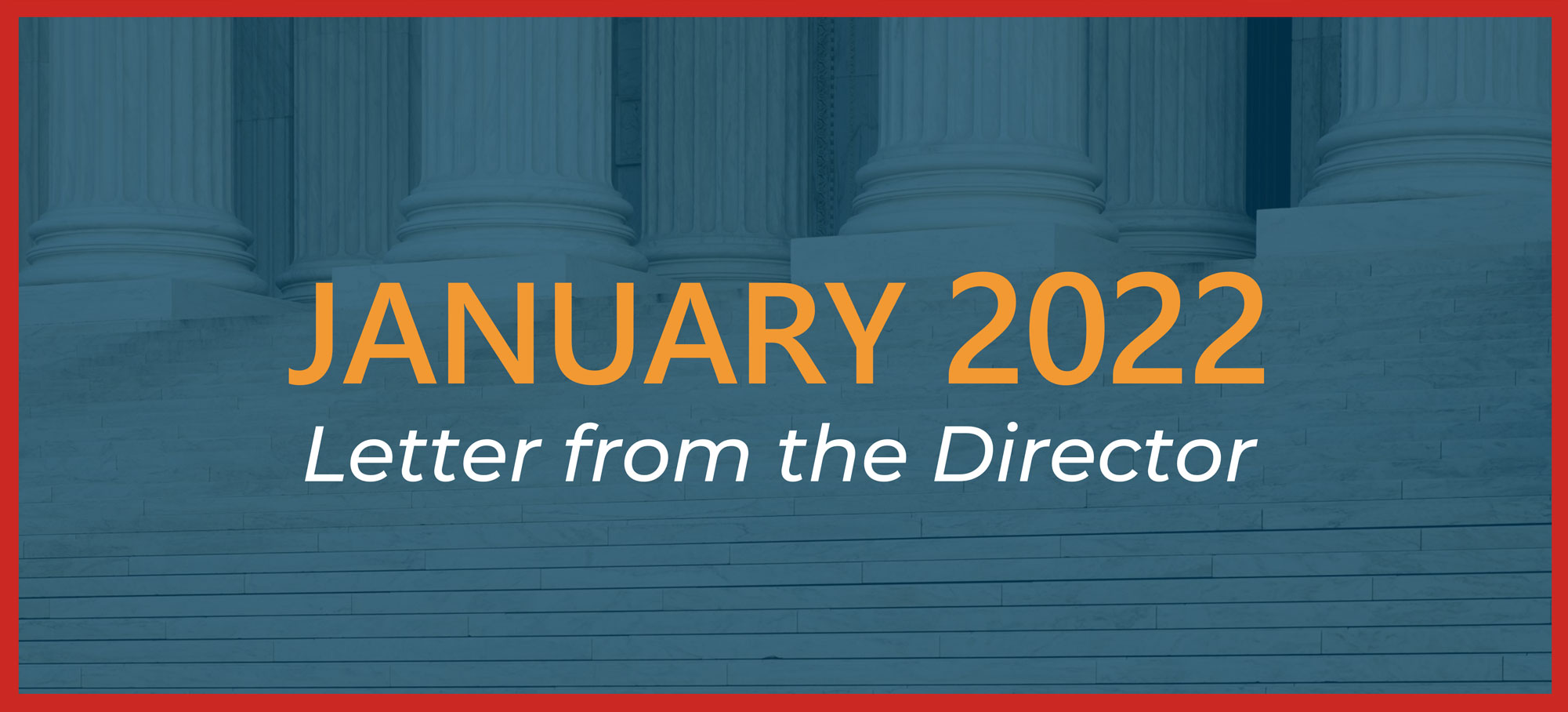This month's newsletter is written by guest author Dr. Rebecca Puhl. Dr. Puhl is Deputy Director for the Rudd Center for Food Policy & Obesity and Professor in the Department of Human Development and Family Studies at The University of Connecticut. She is responsible for identifying and coordinating research and policy efforts aimed at reducing weight bias.
As we begin 2022, it remains legal almost everywhere in the US to discriminate against people because of their body weight. As many as 40% of people with obesity face weight discrimination in America. While national and state anti-discrimination laws offer protection for people who are unfairly treated because of their race, age, sex, or religion, these laws do not extend to discrimination based on body weight or size. One exception is the state of Michigan, which passed legislation (more than 40 years ago) to include body weight as a protected category in its civil rights statute. For years, Massachusetts legislators have tried to introduce similar legislation, but the most recent iteration of this bill has not yet passed. Otherwise, only a handful of cities, scattered across the country, have passed local ordinances prohibiting weight discrimination. In short, this legal landscape is barren.
For children and adolescents with obesity, weight stigma is experienced as bullying and victimization. Unfortunately, policies to protect youth from this mistreatment are also inadequate. This might seem surprising, as school districts across the country require anti-bullying policies, and every state in the U.S. has an anti-bullying law. The problem is that the strength of these policies varies widely, particularly with respect to enumerating characteristics that place youth at risk for bullying, like race, ethnicity or sexual orientation. Policies that enumerate characteristics correspond with lower rates of bullying and increased student safety for targeted youth. Our recent evidence (forthcoming in the Journal of Public Health Policy) shows that weight-based bullying is less frequent in states that enumerate weight in anti-bullying laws compared to states that do not. Unfortunately, body weight is primarily absent in policy language; only three state anti-bullying laws enumerate weight, and most school-based anti-bullying policies fail to mention it.
Thus, for both adults and youth, there is a clear need for policies to prohibit weight discrimination and bullying. As a researcher, I’ve been studying public support for different types of policies and laws that could help remedy these problems. Our most recent research (with almost 14,000 people) shows that considerable public policy support is present, not only in the U.S., but also in France, Germany, Britain, Australia, and Canada. In our study, we found that policy support to address weight bullying in youth was very high in each of these six countries: 90%-94% of people supported strengthening school-based anti-bullying policies and 83-95% supported improving anti-bullying laws to better protect youth from weight-based bullying. For antidiscrimination laws, support was variable across countries, but was consistently high for laws that would make it illegal for employers to refuse to hire people because of their weight (on average 79% of people supported this across countries). There was also moderate support (on average 61%) for broader workplace discrimination laws to prohibit weight discrimination in employment, and for laws adding body weight as a protected category in existing human rights legislation (57%), similar to the Michigan law already in place.
These recent findings align with studies we’ve published in the U.S. over the past decade, showing that at least 2/3 of Americans would support employment-based or civil rights laws to prohibit weight discrimination and more than 80% would support laws to better protect youth from weight-based bullying.
So why haven’t we seen more policy progress? As a researcher who began studying weight stigma more than 20 years ago, I’ve observed considerable improvements in public awareness of weight stigma, increases in scientific attention to this problem, and concerted efforts in the medical community to address weight bias. But broader societal policy change has lagged behind.
What’s missing appears to be political will. Public awareness is present, and public support for policies to address it has been established, but we don’t see policy makers championing this issue. It may not even be on their radar. As professionals in fields of public policy, law, obesity, public health, and medicine, we have an opportunity to educate and engage policy makers on the societal problem of weight stigma and legislative opportunities to combat this injustice. Across these professional disciplines, there is recognition of the unfairness and harms of weight stigma, and a fundamental consensus that people of all body sizes should be afforded equal opportunities and deserve to be treated with respect and dignity. Let’s use this knowledge and our collective voices to call for much-needed policy actions to eliminate weight stigma, in all its forms. Members of the STOP Obesity Alliance have an important role to play to help elevate weight stigma on the policy agenda. So on our list of New Year’s resolutions, let’s add the goal of engaging policy makers on weight stigma this year – even one phone call, one social media post, or one tweet, could make a difference.
Rebecca Puhl, PhD
Professor, Department of Human Development & Family Sciences
Deputy Director, Rudd Center for Food Policy & Health
University of Connecticut
www.uconnruddcenter.org



